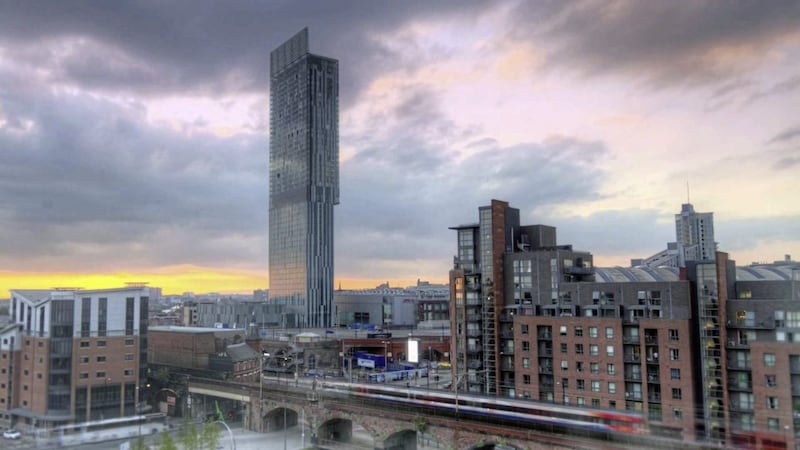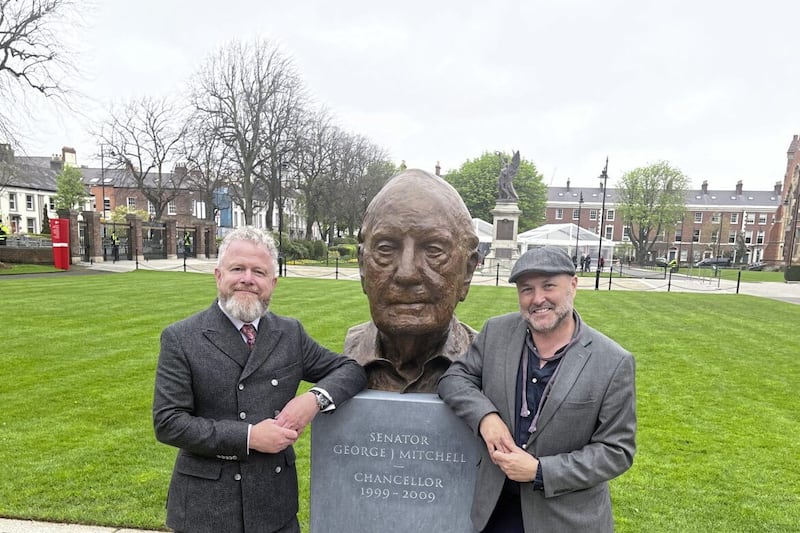A WORD we’ve heard time and again when it comes to Brexit is uncertainty. In an uncertain business climate, companies tend to be more cautious and as a result, be more risk-averse.
My only real experience of that new caution here in Belfast so far came last summer when I heard a set of Chinese investors had pulled out of a deal to buy the Sirocco site on the other side of the Lagan from the Waterfront Hall. I heard it from a good source but I can’t be sure if it’s true. And now, apparently, it’s been bought again by another set of non-EU investors. We’ll see.
So, in the absence of really hard evidence, I’ve been a bit sceptical about all the fear and in some cases, self-interested scaremongering going on around Brexit. Until this weekend, when I read The Financial Times where it was reported that one of the UK’s most respected and well-run property companies, Great Portland Estates, has sold the new London headquarters of Facebook for £435 million.
That sounds like a good deal, but actually the price represents a discount on what Great Portland had valued it at. In property terms, if a yield goes up, the market is saying that future values will come down. In the case of the Facebook headquarters, the yield had ‘gone out’ from an estimated high of 3.75 per cent in 2014 to 4.25 per cent at exit.
Great Portland accepted the £435m offer from a German fund on the basis that it wanted to de-risk “as it looks ahead to a continued period of market uncertainty”. As a result of the sale, Great Portland will be able to pay out a special dividend of £110m to shareholders which again sounds good except that it’s sending a signal of battening down the hatches before a storm rather than one of confidence. And don’t forget this isn't a lock-up in Lurgan - it's is 420,000 of prime office space in Fitzrovia at a rent of £17.8m a year to one of the world’s best known companies.
So, I have to admit, if that is what is happening in London at a macro scale, I makes me wonder much more seriously now about Brexit’s effect on Belfast’s economic development. One thing’s for sure, we as a city have to do our best to remove uncertainty. How do we that? Well, one of the ways we do it is by making sure city government works well when it comes to allowing investors to get on with the projects they want to pursue.
Of course, it also helps if those investors are well aware of the rules on the way in and bring deliverable projects to the table, though Belfast as a city also needs to be open to new ideas and challenges to traditional thinking in development terms. Otherwise, we’re going to get left behind and the investment will go elsewhere.
One of the cities Belfast is attempting to emulate is Manchester, the northern powerhouse as it has become to be known. In 2008, I was over there at a conference and stayed at the Hilton Hotel in the Beetham Tower in Manchester city centre. Beetham Tower is the tallest building in the UK outside of London.
Completed in 2006, it’s over 550 feet tall and has 47 storeys of apartments and the hotel. It is one of the beacons of the regeneration of Manchester after the IRA bomb of 1996. For a long time, it sat on its own but now four additional towers have been given permission including the 64 storey, 656 feet Owen St tower. It started on site last summer and will be the second tallest building in the UK behind the London Shard when it completes in 2018.
Just for comparison, Belfast’s tallest building is the Obel Tower completed in 2011 with 28 storeys and is 279 feet. For six years now, Obel has been on its own, perhaps understandable given the recession, but now there is new money in town, much of it international and a real willingness to push on with ambitious projects.
Potentially helping ambitions projects along is the City Council’s recent opening of its new Local Development Plan consultation. The plan will set out the vision for Belfast from 2020-2035 and will be the guiding tool for public and private investment throughout Belfast in the future including the building of 37,000 new homes, an increase of the city’s population to over 400,000 and the creation of 46,000 new jobs. The Council says it will facilitate this growth by “coordinating public and private investment to encourage development where it can be of most benefit to the wellbeing of the community.”
Those are ambitious numbers but why shouldn’t we be ambitious? From what I can see, the potential and the money is there, we just need certainty in policy terms so that investors can be confident that their money will be deployed safely and the developments delivered on time and within budget.
Next month, the City Council, in a brilliant example of public-private partnership, hosts the Belfast stand at the largest property and investment exhibition in the world, MIPIM in Cannes. It’s a huge undertaking where Belfast is still a relatively small player but we’re there and this year, we’ll be there in numbers, over 30 companies will help pay for the stand through sponsorship and attendance.
Less than two years after planning powers were restored to the Council, the MIPIM collaboration and many other small examples help demonstrate an increasing certainty the private sector will support the public sector to help deliver the city’s ambitions.
What is needed now, particularly in the Brexit context, is the public sector, through the Council, statutory agencies and where relevant, Executive departments, showing consistent certainty, integration of approach and a predisposition to ambition and delivery.
And if that means putting some properly tall buildings into Belfast city centre to get to the scale many of the investors need to achieve, then let’s get on with it while the appetite and the interest is still there.
:: Paul McErlean (paul@mcepublicrelations.com) is managing director of MCE Public Relations
:: Next week: Claire Aiken








